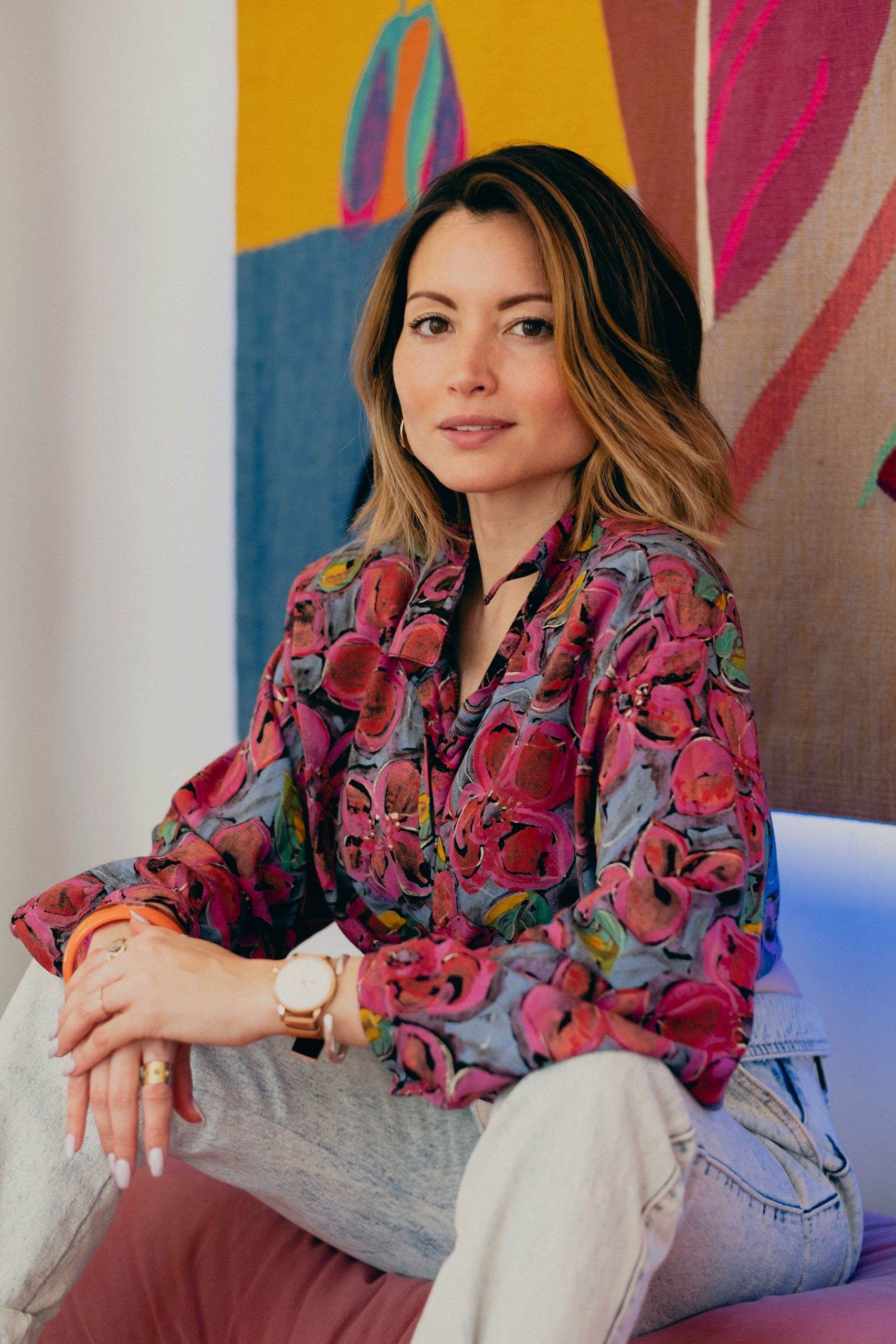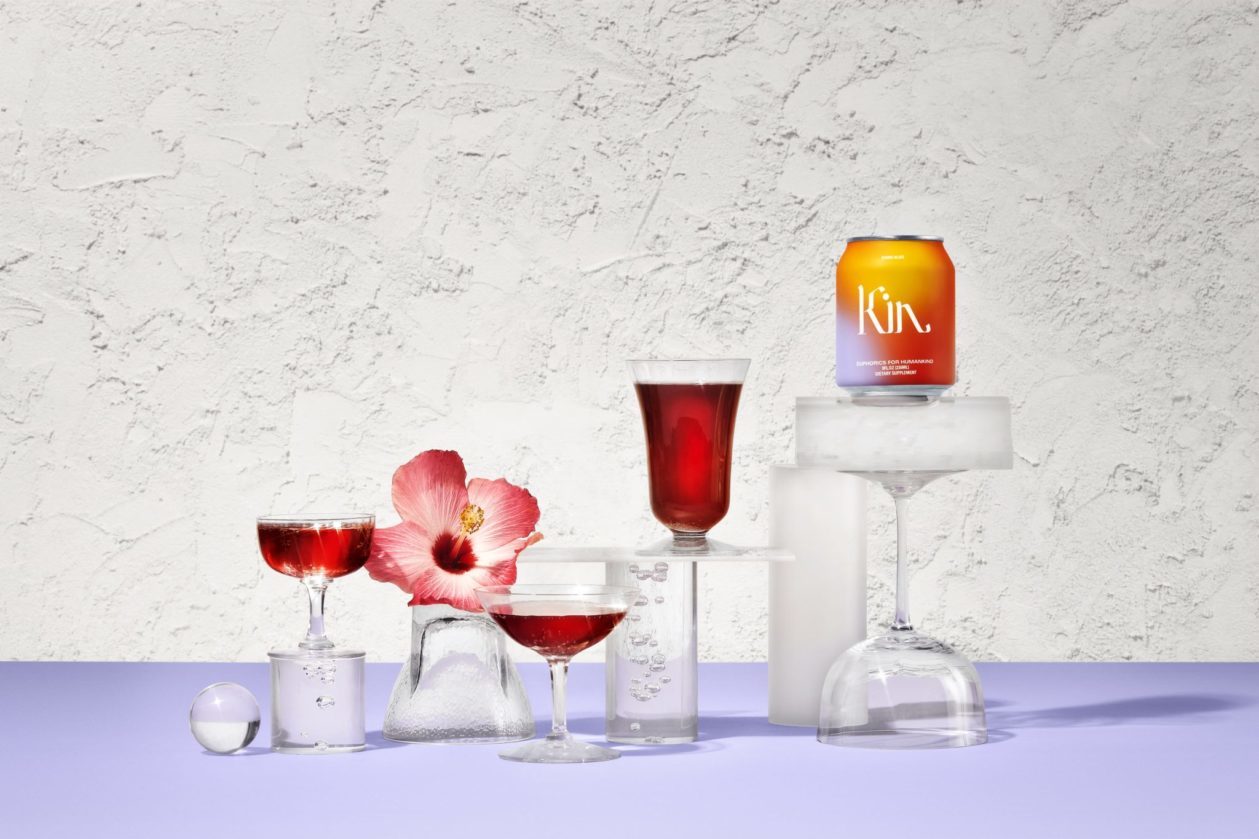2020 was a big year for alcohol. Liquor sales—especially online—spiked. A report from IWSR forecasts that the U.S. is poised to become the largest beverage alcohol e-commerce market globally by the end of this year. With the sale and consumption of alcohol having risen due to the pandemic, the idea of participating in dry January seems imperative in this new year.
 Interestingly, while alcohol had its year in 2020, the nonalcoholic drink market has been growing. In 2018, it was a $1.1 trillion market, which Grand View Research attributes to the societal shift towards healthier lifestyles and changing diets focused on consuming more nutrient-rich products. And the last couple of years have seen the rise of the mocktail and alcohol-free bars. All of this is to explain why zero-proof spirits like Kin Euphorics have become trendy, though founder and CEO Jen Batchelor (pictured right) would not equate Kin to being a mocktail, despite the company offering a drink that plays on the concept of an Aperol spritz.
Interestingly, while alcohol had its year in 2020, the nonalcoholic drink market has been growing. In 2018, it was a $1.1 trillion market, which Grand View Research attributes to the societal shift towards healthier lifestyles and changing diets focused on consuming more nutrient-rich products. And the last couple of years have seen the rise of the mocktail and alcohol-free bars. All of this is to explain why zero-proof spirits like Kin Euphorics have become trendy, though founder and CEO Jen Batchelor (pictured right) would not equate Kin to being a mocktail, despite the company offering a drink that plays on the concept of an Aperol spritz.

“We’re such a vastly different category than a mocktail,” she says. She’s right. To call Kin a mocktail would miss the point of what Batchelor is out to accomplish with Kin, which is to offer consumers a smart alternative drink to sip at home and in social settings that can actually improve how you feel instead of offering you a hangover the next morning.
“What a novel concept that you would actually drink something in a social setting that every dollar you spend on that drink is actually an investment in yourself,” Batchelor says. Kin was in part born out of the fact that a product like it didn’t really exist on the market—something Batchelor was surprised by.
“It didn’t take me very long to come to understand why drinking alcohol was so painful and so costly in terms of the day after, you know, and when I finally learned what alcohol was doing to my brain and my endocrine system, I started to develop a more intimate relationship with my mood, how I wanted to feel, who I was, alcohol sort of stopped fitting that equation,” she says. “And so, when I looked at a viable alternative, what exists in the world, and we’d walk into Whole Foods, and I would ask, ‘Hey, what do you guys have for after hours, you know, for stress relief, for whatever it is that I thought alcohol was giving me, and they would immediately walk me to the supplements. I don’t want to pop a pill, and I certainly don’t want a gray box remedy under my tongue…I just want to have something really chic and sophisticated I can drink with my friends that’s not a mocktail because mocktails, I learned very quickly, were chock full of sugar, being that they were primarily juices and syrup, which are also a neurotoxin. So, for us, it was really about creating a really smart alternative.”

And with that, Kin was born. Seeing as younger generations are actually moving away from alcohol consumption, according to Batchelor, it was about time that a sophisticated nonalcoholic beverage offering hit the market.
“It’s very clear people are realizing it’s no longer that cute to wake up every single morning on your first Zoom meeting and be hung over,” Batchelor says. “If you look at the data the World Health Organization has already shared, the world’s population of drinkers has declined by 10 percent over the last 10 years…We also have a generation, incoming generation, of consumers…that never really picked up drinking to begin with. These are folks that are not building habits around alcohol. Very different than the millennial generation. So, I think that also contributes.”
Kin is a pioneer of a new type of spirit called euphorics, which in essence is a nonalcoholic drink made from botanicals that are intended to “elevate the spirit and relax the body,” according to Kin’s website. One of the aspects of Kin that Batchelor is passionate about is the neurochemistry aspect, as she had noticed that many people when speaking about alcohol only mention the liver, not the brain.
“Something that kind of bothered me was like why do we only talk about the liver when we talk about alcohol being destructive? You never hear somebody say, ‘Oh my gosh, I really need this whiskey tonic because my brain.’ You say, ‘I had a long day of work. I’m going to regret this later, but I’m going to pound this drink tonight.’ And that’s like, I think in general, we’re a burgeoning generation of people that are way too educated, way too informed, to make that kind of a bargain with life,” Batchelor says. “You know, it just started to become so costly I think for the generation where like, we know better. So, how can we start either moderating or supplementing for this ritual. And I was certainly not the only one of my friend group asking that question. So, then it became fascinating. I was like, ‘OK, well what else is involved? If the liver is not responsible for helping us feel relaxed—it’s actually the thing that’s just like the last stop, the filter—then, I want to know between my heart, my endocrine system and my brain, what exactly is responsible for me feeling relaxed, connected, socially uninhibited, creative, whatever it is a think wine and spirits are doing for me?”
Batchelor makes it clear that in creating Kin, she was not trying to go to war with alcohol. She simply wanted to create a drink that she could have any night of the week that would give her a sense of ease and bliss, not unlike the way alcohol does but with ingredients that would ultimately benefit the body. And in creating this new kind of drink, the word “euphorics” was an intentional choice, as it plays into Kin’s mission. The word “euphoric” comes from the Greek word “euphoros,” which means “bearing well” or “healthy.” The word “euphoria” was a term that was used in the 1700s to note that a patient had recovered after receiving treatment, feeling at ease. Now, according to Merriam-Webster, “euphoria” is used in modern medicine to describe abnormal feelings. Because “euphoria” is now often linked to the feeling some get from using drugs, it was important to Batchelor that Kin bring the word back to its earlier definition.
“We rob ourselves of the opportunity to experience that holistic sense of well-being and to know what it feels like to be ourselves, to be ourselves in an optimal state. So that’s why we want to really resuscitate that word, that feeling and help people get there,” she says.







